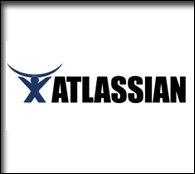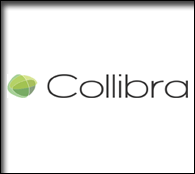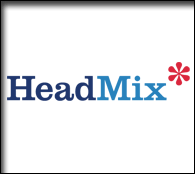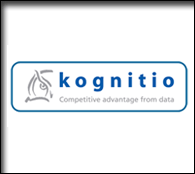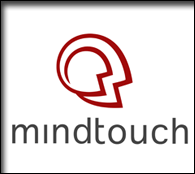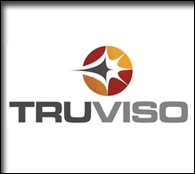Archive for April, 2008
On “shared situational awareness”
by Eric Norlin on Apr.29, 2008, under defrag "theory"
This morning I came across a phrase from Mike Gotta of Burton Group: “shared situational awareness.” The phrase comes in the context of talking about how Twitter is evolving into the mechanism by which we are letting each other know about everything else (including our “out of office” status). Indeed, Graeme Thickins (Minnesota’s uber alpha-geek) has stated that Twitter is “the only email sig I need anymore.” That might be overstating it a bit (or it may not), but it does point to something that a lot of us involved in the twitter-experiment know: there is a shared space that is no longer living on the blog of person, but rather in the space between people; in the conversation; in the comments; in the twitterverse.
I can see the examples every day. When I wanted to introduce myself to Sam Lawrence, I did so via Twitter. When I “tweeted” about “shared situational awareness,” Paul Kedrosky responded by suggesting an appropriate acronym. And in nearly all cases, I’m not “sending a message” to anyone (nor are they to me), rather we’re all engaged in talking around something - in a (yep), “shared situational awareness.”
All of it dovetails into things that I keep reading from Clay Shirky. The “cognitive surplus” that people used to “spend” on TV is now spent interactively. The method for “brainstorming” is not an individual having a revelation, but a shared space that leads to an “aha.” Quoting Clay:
“Burt says good ideas are not typically the province of an individual having a brainstorm, they’re often an import-export business, they involve people who see across multiple lines of business and understand, ah ha, if the engineers knew what the designers knew and the designers knew what the engineers knew, we could actually do 10% more at 10% lower cost. Those kinds of intuitions can only be had when people are talking to each other outside the traditional lines. “
Perhaps, most interestingly (from my POV) is how session ideas like “Finding serendipitous information through context” are rising to the top of what Defrag attendees, speakers and sponsors want to explore. Its not just that information “finds me better.” Or that search “works.” Its that something happens in a shared space that both A) makes more intuitive how I deal with information; and B) leads to “us” discovering something. All of which is to say that the implicit, semantic, collaborative web is probably all of the above (implicit, semantic AND collaborative -which is really an explicit act).
What ultimate role does Twitter or wikis or semantic technologies play in all of this? Frankly, I’m not sure. But I do know that we won’t get there in a private space.
The Defrag - Sopranos connection
by Eric Norlin on Apr.28, 2008, under general
Anyone that’s been to Defrag knows that the conference wouldn’t happen without the assistance of my wife, Kim. The other night we were enjoying an end of the week cocktail and reviewing some Defrag logistical details, when Kim pointed out that Defrag was actually *better* than “that scene in the Sopranos.”
She is, of course, referring to the dream sequence in the final season where Tony loses his wallet and then tries to attend a defense technology conference (he’s a salesman in his dream). He’s not allowed in because he doesn’t have an ID. Kim’s point was that you won’t see that at Defrag. Why? “Because I know everyone before they get there.” (to quote her)
Not that she actually knows everyone, but rather that our interaction (and familiarity) with attendees, speakers, etc is so extensive, that we’ll most likely have emailed, spoken, twittered, IM’d or something with prior to the show. In other words, we get to identity not through anonymity, or from a third party verification (driver’s license), but through knowing you.
And that’s just cool. ![]()
Fun with the “Contrarian Jason” indicator
by Eric Norlin on Apr.18, 2008, under general, industry stuff
Defrag advisor and friend, Paul Kedrosky likes data.
Several months back, we were joking via email about “contrarian indicators” - or the idea that you can derive useful intelligence by going against a prominent opinion. So, for example, when Time magazine puts a “recession” on the cover, you should go “buy” the stock market (or, conversely, when Barron’s puts the “bull market” on the cover, you should sell).
I joked with Paul that I was going to start tracking a “contrarian jason” indicator — or a buy signal based upon the idea that when Jason Calacanis mentions the recession, its a good time to “get long.” Now, for the record, I’m just poking fun at Jason - I’ve actually never met him (I think we’ve emailed once or twice), but he just seemed an easy “contrarian” target because he is so vocal, so well-known and so “mainstream” in the small world that is tech alpha geeks.
My indicator is based upon getting long (buying) the Nasdaq composite on any day that Jason mentions “recession” in a negative sense on his blog, twitter stream, etc - and then holding that trade for 30 days (with an assumed “sell” at the end of the 30 days). Like I said, just some good, ole-fashioned, fun with data!
Here are the results, so far (all results hypothetical, not tested with real money):
8/20/07 Trade initiated; closed out for a 5.8% gain.
3/3/08 Trade initiated; closed out for a 4.6% gain.
3/4/08 Trade initiated; closed out for a 4.8% gain.
3/6/08 Trade initiated; closed out for a 5.0% gain.
4/14/08 Trade initiated; still open — currently sitting on a 5.8% gain.
As you can see, the contrarian jason indicator is hitting it outta the park! Obviously, no one should take this seriously, or actually trade based on this - but I will continue to watch the “contrarian jason” — though the question is now open: if jason knows about the contrarian jason, does it spoil future results. And secondarily, can the contrarian jason also act as a sell signal (or a “get short” signal).
Fun with data on a Friday!
Update on the top “five”
by Eric Norlin on Apr.18, 2008, under conference topics
…keeping a running tally of the “top rated” potential session topics for Defrag - and its not really a “top five” anymore. It breaks out as follows:
(on a scale of 5):
4.09 Finding Serendipitous Information through Context
3.73 Users Connecting the Dots: Structuring the Unstructured
3.73 Visualizing Data
3.55 Next-level Discovery
3.45 Collective Intelligence and Social Media Marketing
3.45 Getting to Relevancy through Identity
As always, I wanna know what you think.
Gettin’ satisfied
by Eric Norlin on Apr.17, 2008, under sponsors
Lane and the gang over at Get Satisfaction have released their API. Apparently, this will allow folks to build widgets and things to track conversation threads around the Get Satisfaction platform. Cool stuff, huh?
It seems fitting that Get Satisfaction is the Birds of a Feather organizer for this year’s conference. One of the things we didn’t do very well last year was facilitate the Birds of a Feather dinners. I’m know the group from Get Satisfaction will change that for us…..hey, maybe they can build some cool widgets around it? Lane? ![]()
The early top five
by Eric Norlin on Apr.17, 2008, under conference topics
The defrag survey is still open, so head on over and tell me what you think!
That said, here are the early “top five” highest rated topic ideas (with a 5 being the highest rating):
- 4.13 Finding serendipitous information through context
- 3.75Â Users connecting the dots: structuring the unstructured
- 3.50 What is next-level discovery?
- 3.38 Visualizing data
- 3.38 Getting to relevancy through identity
Head on over and make your voice heard…
Defrag topics - time to get involved
by Eric Norlin on Apr.16, 2008, under conference topics
I’ve set up an online survey for folks to rate potential Defrag topics and suggest others. Don’t worry, its not some scheme to get you to give me your email (you *can* give me your email, or you can do it anonymously). ![]()
Also, don’t forget about the Defrag wiki!
The customer is always right - except when they’re dead wrong
by Eric Norlin on Apr.16, 2008, under general, sponsors
Part of what I truly love about running Defrag is that I get to meet and interact with a bunch of young companies and entrepreneurs (who are often very experienced) — and lemme just say, ya gotta love the attitude!
I did nothing but smile when I read the latest post from Kevin over at blist - titled “When can I run blist locally?”:
” Never. I’m serious. I know the customer is always right. Well not this time. blist is delivered as a service because that’s where it makes sense to run it - for you - not just for us.”
HA! Amen, Kevin. I couldn’t agree more. The customer is always right — except when they’re dead wrong, and when they are its your job (as a company serving them) to tell them so.
By the way, this “kick ass and take names” attitude seems to be a common thread that runs throughout a bunch of Defrag’s current sponsor companies. Need proof? Just check out Sam over at Jive Software, Aaron at MindTouch or Lane at Get Satisfaction (that goes for our other sponsors too - I just couldn’t find good links quickly).
Does Defrag attract them, or do I search them out? I don’t know and I don’t care - I’m just glad I get to interact with these folks.
“Climbing a mountain in flip-flops”
by Eric Norlin on Apr.16, 2008, under conference topics
“Climbing a mountain in flip-flops” - that’s the line Dan Farber used in a post describing semantic technologies and the task that faces them. In the post, Dan covers technologies from Powerset, True Knowledge, Metaweb and Radar Networks — and reaches the conclusion that “it’s going to be a very long beta cycle.”
The idea of the “semantic web” has, of course, been around for quite some time. And I wonder if the label doesn’t often get in the way of what the problem set actually is. From my point of view, semantic technologies in all of their flavors (from those mentioned above to folks like AdaptiveBlue or Talis) are really about “accelerating the aha moment” (sorry, you knew I was going to do that, right?). Or, more appropriately, helping people to fold, spindle and mutilate information that is largely unstructured to allow for greater “findability,” organization, and general insight.
That is where I see “the semantic web” intersecting with other defrag topics (the implicit web, collaboration, etc).
Once we get past the label, the real questions come down to the process of “semantisizing” things (boy, am I making up words today or what?!). Top-down structure (protocols), bottoms-up organization (tagging and folksonomy), or entirely new platforms (natural language processing of wikipedia) are all ways of trying to avoid the boil the ocean problem.
Any way you slice it, we all can sense the intuitive value of semantic tools. The next step is to overcome that “sense” and move toward an actualization. For some insight into that I turn to the cycle by which identity management technologies advanced. It feels to me like semantic technologies are sitting in a state roughly equivalent to where identity was in 2003-2004 (or roughly 4 years behind). Now, identity *still* isn’t solved, though it has made some pretty significant advances.
Is the breakthrough in semantic technologies still 5+ years off? I’d love to hear your thoughts.
Content Resources for Defrag
by Eric Norlin on Apr.14, 2008, under conference topics
I’m beginning to roll out some “content resources” for Defrag. We’ll start slowly and build to a feverish pitch by the fall, I’m sure.
So, here’s where to start:
- The Defrag Draft Agenda: This is really just a collection of beginning ideas. There are a couple of confirmed sessions there, but mostly, its a brainstorm in process.
- The Brand New Defrag Wiki: Just launched this today — a wiki for both “confirmed” and “proposed” Defrag sessions. Please feel free to edit away, as I intend for this wiki to be a resource on many levels. It should serve to house session descriptions; give “attendees” (our attendees are more like “interactees”) a place to shape and comment on sessions prior to Defrag; allow people to propose sessions; and be the place where we collectively gather notes once we get to Defrag. In short, its one helluva grand experiment!
Please check them out (especially the wiki) and stay tuned.
